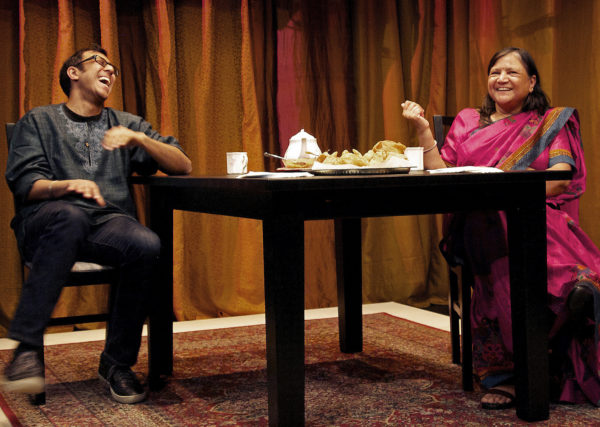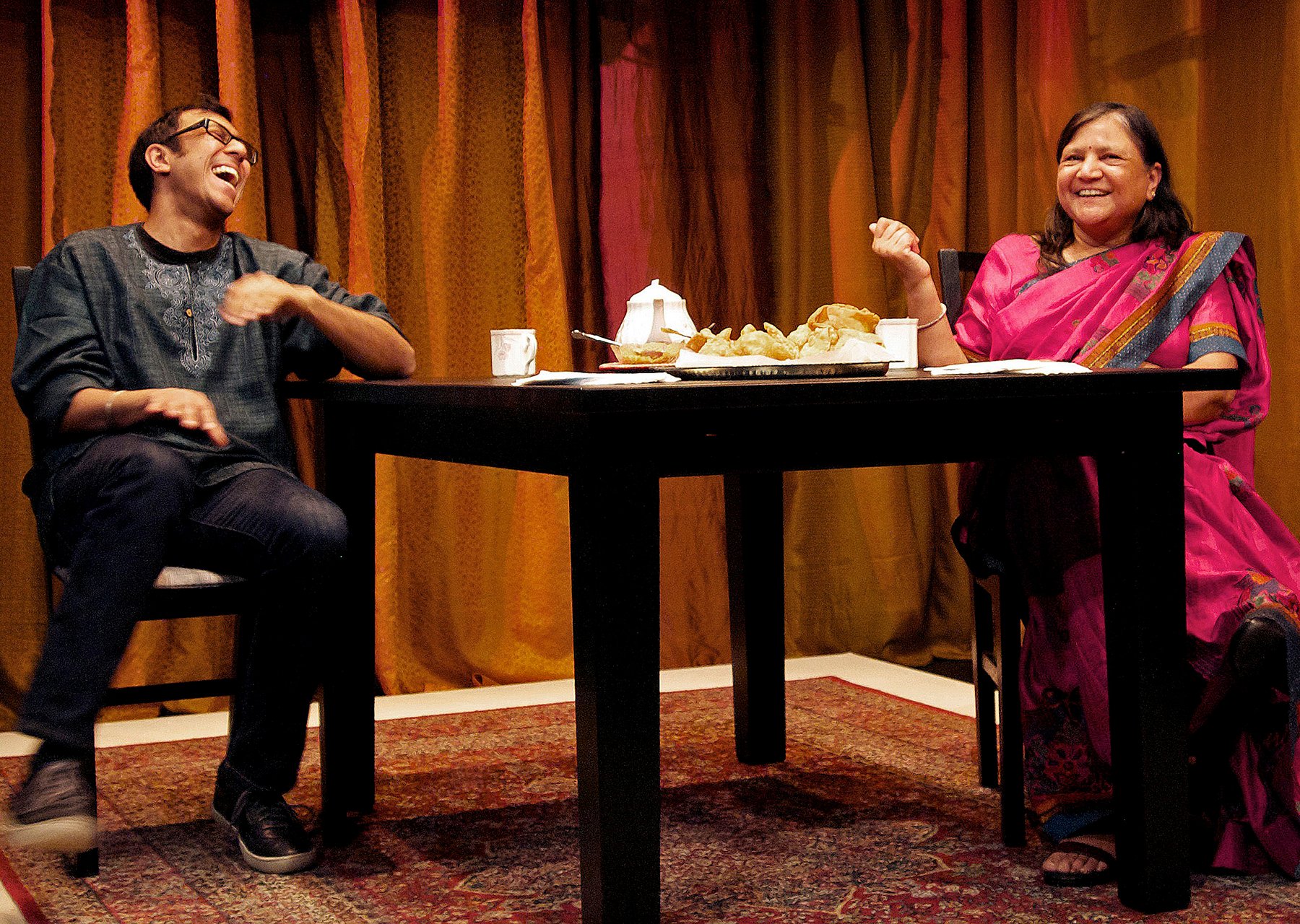
“A Brimful of Asha,” presented by mother and son duo Ravi and Asha Jain (Ravi being the performer of the pair, Asha being his mother), is a unique performance piece that few will get the opportunity to see, let alone something similar to it. “A Brimful of Asha” was presented by Stanford Live, and stepping into Bing Concert Studio, audience members were directed to the stage, where Ravi and Asha both introduced themselves and gave a homemade samosa. The stage was simply set as seen in the production photos for the event: a carpet with a wooden table on top, the wall behind a curtain and a TV screen displayed prominently above the table. As the lights slowly dimmed, “A Brimful of Asha” was presented as a pseudo-conversation with the audience, moderated by Ravi and his mother Asha. I would prefer to describe it as a form of theatrical storytelling rather than just plain theater, but this format doesn’t detract from its intent. The performance was prefaced by the fact that Asha is not an actor, while Ravi is, although both feel, in a way, wholly unnecessary statements, because audiences can often quickly be drawn into believability if there is a strong story being told.
Ravi began to tell the story of how his parents led him to believe that he was receiving a wonderful opportunity to do theater in India but were instead setting him up to potentially be in an arranged marriage. The duo presented the story via Ravi, as he talked consistently for nearly the whole 85 minutes, with small interjections from Asha at times and brief slides on the TV screen to aid with visuals. Occasionally, the monologuing became long-winded and forceful in its humor, but at moments it also shone with its comedic descriptions of Ravi’s journey in India. Because of the short length of the piece, audience members didn’t have to concentrate too hard on psychoanalyzing specifics of the story, and they could instead be drawn into the feelings evoked from mother to son and vice versa. It felt rather important that Ravi and Asha’s story was actually true (or at least very convincingly told as such), even though the fabricated conversation that was being presented wasn’t.
Filled with heartfelt comedic moments of misunderstanding, conflict and genuine love, “A Brimful of Asha” was ultimately a charming little piece of theater (or theatrical storytelling). Diverse, representative narrative performances are so hard to come by, and audience members got a small taste of Ravi and Asha’s respective experiences and may have learned a little bit about Indian culture (more specifically, Ravi and Asha’s iteration of it all) along the way. The story of Ravi’s frustration and Asha’s efforts out of love for Ravi became a way for me to reflect upon my own relationships as well. Ultimately, Ravi and Asha Jain’s production of “A Brimful of Asha” isn’t perfect, but it’s a heartwarming, important family story of culture clash and generational miscommunication that many will be able to relate to.
Contact Olivia Popp at oliviapopp ‘at’ stanford.edu.
